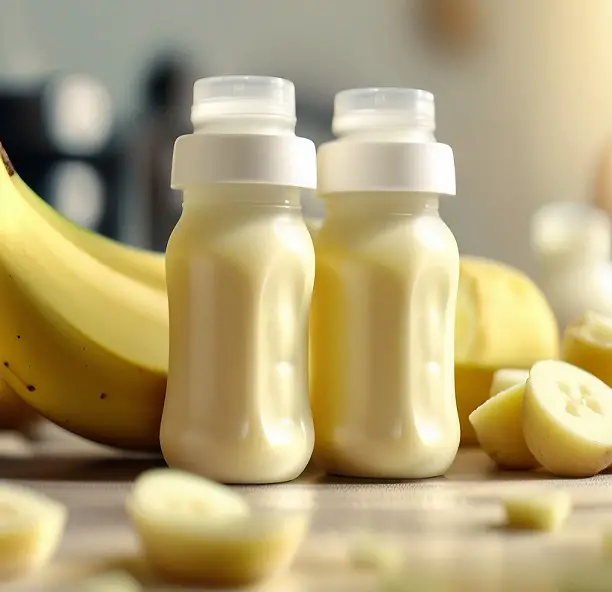As a parent, there are few things more agonizing than witnessing your baby in pain and distress from colic. The inconsolable crying, sleepless nights, and constant feeling of helplessness can leave you feeling emotionally drained and overwhelmed. While the exact cause of colic is unknown, it is believed to be related to digestive issues, such as gas, reflux, or food sensitivity. Choosing the right formula for a colic baby can be challenging, but it can make a big difference in reducing their discomfort and improving their quality of life.
Table of Contents
Definition of colic and its symptoms
Colic is not a disease, but a term used to describe a set of symptoms in infants. It is defined as crying for more than three hours a day, three days a week, for at least three weeks in a row. Colicky babies may cry inconsolably, arch their backs, clench their fists, and have trouble sleeping or feeding. They may also show signs of discomfort, such as pulling up their legs, passing gas, or spitting up. Importance of choosing the right formula for colic babies
Breastfeeding is the best option for babies, but it may not be possible or practical for all mothers. Formula feeding is a good alternative, but not all formulas are created equal. Some formulas may worsen colic symptoms by causing gas, bloating, or constipation, while others may help alleviate them. Choosing the right formula for a colic baby can reduce their crying time, improve their digestion and nutrient absorption, and promote their overall health and well-being.
What to Consider When Choosing a Colic Best Formula For Colic Babies
Consultation with a pediatrician
Before switching to a new formula, parents should consult with their pediatrician to rule out any underlying medical conditions and to ensure that the chosen formula meets their baby’s nutritional needs. A doctor can also recommend the best type of formula based on the baby’s age, weight, and symptoms.
Type of protein (partially hydrolyzed or extensively hydrolyzed)
Partially hydrolyzed protein formulas are broken down into smaller protein fragments that are easier to digest and less likely to cause allergic reactions or intolerance. They are recommended for babies with mild to moderate colic symptoms, as well as those at risk of developing allergies or intolerance. Extensively hydrolyzed protein formulas are even more broken down and are suitable for babies with severe colic symptoms or diagnosed with cow’s milk protein allergy.
Lactose content (regular, reduced, or lactose-free)
Lactose is the main carbohydrate in breast milk and most formulas. However, some babies may have trouble digesting lactose, which can lead to colic symptoms. Reducing lactose content or choosing a lactose-free formula can help alleviate these symptoms. However, lactose-free formulas may be more expensive and may not provide the same nutritional benefits as regular or reduced lactose formulas.
Added prebiotics and probiotics
Prebiotics are non-digestible fibers that promote the growth of beneficial bacteria in the gut, while probiotics are live microorganisms that have health benefits when consumed in adequate amounts. Both prebiotics and probiotics can improve gut health, enhance digestion, and reduce colic symptoms in some babies. However, not all formulas contain these ingredients, and their effectiveness may vary depending on the type and amount used.
Added nutrients (such as DHA and ARA)
DHA (docosahexaenoic acid) and ARA (arachidonic acid) are omega-3 and omega-6 fatty acids, respectively, that are important for brain and eye development in infants. Most formulas are fortified with these nutrients, but the amount and type may differ between brands. Choosing a formula with adequate amounts of DHA and ARA can provide additional benefits for a colic baby’s overall health and development.
Ingredients to Avoid
High levels of sugar (such as corn syrup or sucrose)
High levels of sugar can cause digestive issues and contribute to weight gain and other health problems later in life. Avoiding formulas with added sugars, such as corn syrup or sucrose, can help reduce colic symptoms and promote healthy growth and development.
Artificial colors and flavors
Artificial colors and flavors may be added to some formulas to improve their appearance and taste. However, they have no nutritional value and may cause allergic reactions or digestive problems in some babies. Choosing formulas that are free of artificial colors and flavors can reduce the risk of these issues.
Palm oil (controversial due to environmental concerns and potential digestive issues)
Palm oil is a common ingredient in many formulas as a source of fat. However, it has been linked to environmental issues, such as deforestation and habitat destruction, and may also cause digestive issues in some babies. Choosing formulas without palm oil or with sustainably sourced palm oil can reduce the impact on the environment and the risk of digestive issues.
7 Best Formulas for Colic Babies
Enfamil Gentlease is a partially hydrolyzed formula madewith whey protein that is easy to digest and gentle on the stomach.
It also contains reduced lactose to reduce gas and fussiness, as well as prebiotics and DHA for overall digestive and cognitive health. Enfamil Gentlease is recommended for babies with mild to moderate colic symptoms who are not allergic to cow’s milk protein.
Similac Sensitive
Similac Sensitive is another partially hydrolyzed formula made with whey protein that is designed for babies with sensitive stomachs. It contains reduced lactose and prebiotics for improved digestion and immune function, as well as DHA and Vitamin E for brain and eye development. Similac Sensitive is recommended for babies with mild to moderate colic symptoms who have not responded well to other formulas.
Gerber Good Start
Gerber Good Start is a partially hydrolyzed formula made with whey protein that contains probiotics and prebiotics to support a healthy gut microbiome. It also contains reduced lactose and DHA for improved digestion and cognitive function. Gerber Good Start is recommended for babies with mild to moderate colic symptoms who may benefit from probiotics.
Enfamil ProSobee
Enfamil ProSobee is a soy-based formula that is lact ose-free and made with soy protein isolate. It is ideal for babies with milk protein allergy or lactose intolerance, and it contains DHA for brain and eye development. However, some babies may also be allergic to soy, so it is important to consult with a doctor before trying this formula.
Similac Alimentum
Similac Alimentum is an extensively hydrolyzed formula made with whey protein that is lactose-free and designed for babies with severe colic symptoms or cow’s milk protein allergy. It contains prebiotics and DHA for improved digestion and cognitive function. However, it may be more expensive than other formulas and may not be covered by insurance.
Nutramigen with LGG
Nutramigen with LGG is another extensively hydrolyzed formula made with casein protein that is lactose-free and designed for babies with severe colic symptoms or cow’s milk protein allergy. It also contains probiotics and DHA for improved gut and immune function. However, it may also be more expensive than other formulas and may not be covered by insurance.
Hipp Organic Combiotic
Hipp Organic Combiotic is an organic formula made with milk protein from grass-fed cows and contains prebiotics, probiotics, and DHA forimproved digestive and cognitive health. It is also free of added sugars, artificial colors and flavors, and palm oil. However, it may not be widely available in the United States and may be more expensive than other formulas.
Comparative Table for the Best Baby formulas
The following table summarizes the ingredients and key features of each baby formula:
| Formula | Ingredients | Special Features |
| Enfamil Gentlease | Partially broken-down proteins, reduced lactose, prebiotics | Easier-to-digest proteins, reduced lactose, prebiotics may promote healthy gut flora |
| Similac Sensitive | Reduced lactose, OptiGRO (DHA, lutein, vitamin E) | Reduced lactose may help with gas and fussiness, added DHA, lutein, and vitamin E can support development |
| Gerber Good Start | Easy-to-digest proteins, reduced lactose, L. reuteri probiotic | Easy-to-digest proteins, reduced lactose, added probiotic shown to reduce crying and fussiness |
| Enfamil ProSobee | Soy protein isolate, corn syrup solids, vegetable oil blend | Soy protein may be an alternative for babies who have trouble digesting cow’s milk protein |
| Similac Alimentum | Hydrolyzed casein, corn maltodextrin, high oleic safflower oil | Hydrolyzed casein protein is very easy to digest, may reduce the risk of allergic reaction to cow’s milk |
| Nutramigen with LGG | Extensively hydrolyzed casein, corn syrup solids, LGG probiotic, vegetable oil blend, DHA and ARA | Extensively hydrolyzed casein protein can reduce the risk of allergic reaction, added probiotic and DHA/ARA support healthy gut and development |
| Hipp Organic Combiotic | Organic milk, vegetable oils, lactose, prebiotic fibers, LCPs, vitamins and minerals | Organic ingredients, prebiotic fibers and added LCPs promote healthy gut and brain/eye development |
FAQ about baby formula
Q: Is colic a sign of a more serious health problem?
A: No, colic is a common condition in babies and does not indicate a more serious health problem. However, it can still be distressing for both babies and parents, so it’s important to seek guidance from a pediatrician if you have concerns.
Q: Can switching formulas make colic worse?
A: In some cases, switching formulas can make colic worse, especially if a baby has an allergy or intolerance to certain ingredients. It’s important to consult with a pediatrician before making any formula changes to ensure that the new formula is a good fit for your baby.
Q: How long does colic typically last?
Colic usually peaks around 6 weeks of age and typically improves by the time a baby is 3-4 months old. However, every baby is different, and some may experience colic for a longer or shorter period of time. It’s important to seek guidance from a pediatrician if you have concerns about your baby’s colic symptoms.
Q: Are there any other ways to soothe a colicky baby besides using formula?
A: There are several other methods that can help soothe a colicky baby, such as swaddling them to provide a sense of security, holding them in different positions to ease discomfort, using white noise or music to calm them, providing a pacifier to satisfy their need to suck, and practicing gentle massage techniques to relax their muscles. It’s also important to consider using the right type of baby feeding bottle to prevent excess air intake, which can worsen colic symptoms. Remember to experiment with different techniques to find what works best for your baby and always consult with your pediatrician if you’re struggling to manage their colic symptoms.
Conclusion
As a parent, choosing the right formula for your colic baby can have a significant impact on their comfort, health, and well-being. It is important to consult with your pediatrician before making any formula changes and consider factors such as the type of protein, lactose content, added prebiotics and probiotics, added nutrients, and ingredients to avoid.
The seven formulas discussed in this article are all good options for colic babies, but it is essential to choose the one that best meets your baby’s individual needs and preferences.
Be patient and willing to try different formulas, as it may take some time for your baby to adjust. With the right formula and proper care, you can manage and overcome colic.





